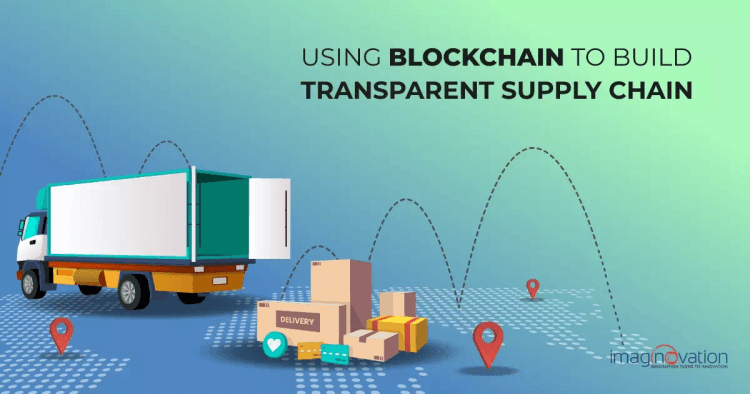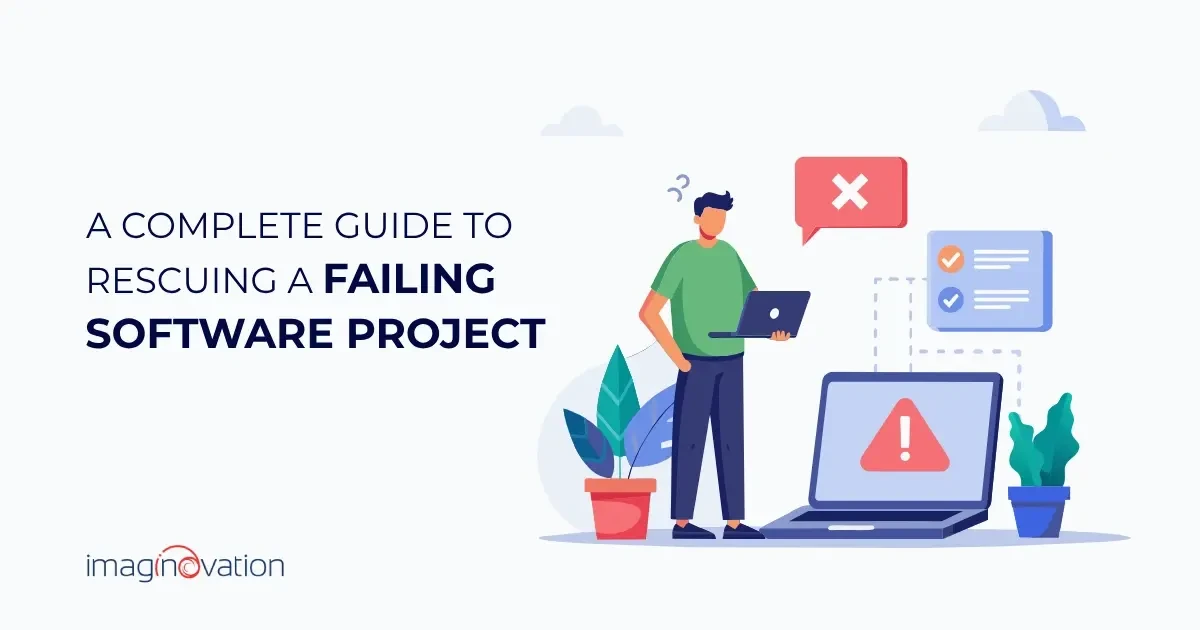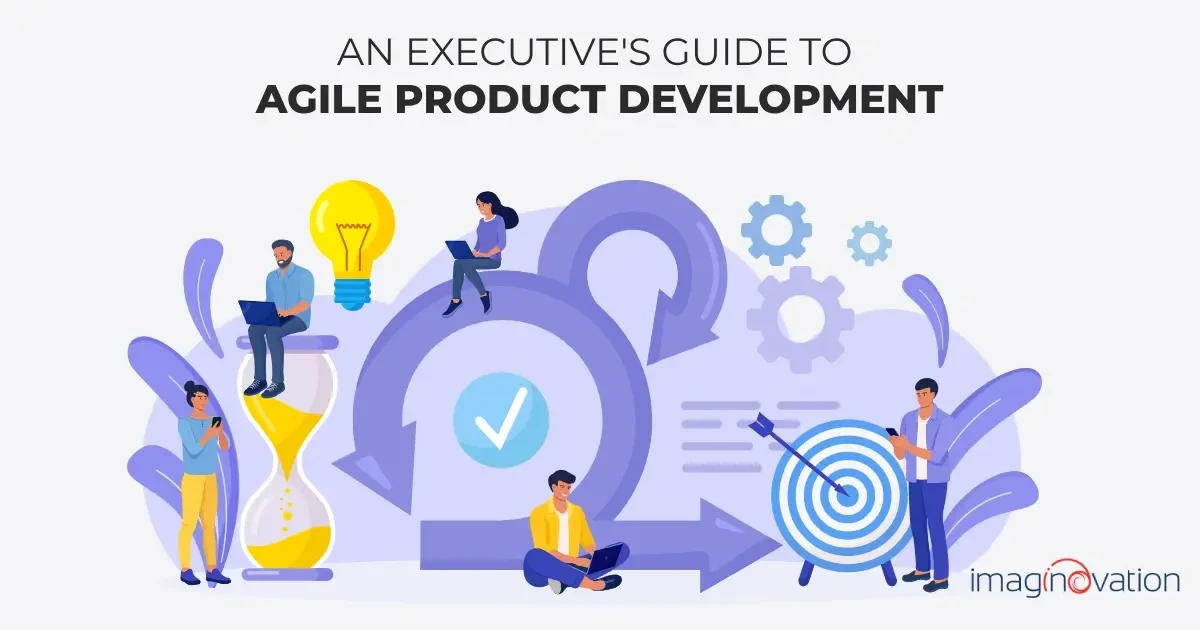Supply chains for goods and services tend to suffer from the chronic condition of Chinese whispers.
Getting a clear idea of what is going on throughout the delivery process can be challenging for a person who is part of the supply chain.
Learning at what point the milk went sour during the supply chain process (which you figured out only when a dissatisfied customer complained about it) often means asking for permits and filling out forms.
Blockchain technology is about to change this in a significant way, though.
In this blog post, we'll talk about how utilizing blockchain technology gets you rid of these problems and creates a system that, although complex, is easy to monitor and track.
More and more industries are expected to start using blockchain in the coming years, and if you look at the advantages this technology brings, its popularity is well-justified.
Challenges in Supply Chain Management
As we already hinted at in the introduction, the supply chain in most industries tends to be faulty.
This is not because of the incompetence of the folks involved but because of the sheer size and complexity of the entire system.
Even the most straightforward supply chains for candy bars have multiple parties involved, from when a box of bars is produced to the point it reaches a petrol station-adjacent store in the middle of nowhere.
Moreover, we must remember that many people make a living by occupying the spot of a middleman in this line of work. So, it shouldn't come as a surprise that there's a massive problem with a lack of transparency.
Here are some of the most significant problems with the current state of supply chains in more detail:
1. Lack of a Universal Database
Now, the databases for all the links within a supply chain typically exist, but they are usually held hostage by the party that runs that chain link.
The thing is, this data can, in many cases, be accessed on request. That said, having to make an official request to your supplier to look into chocolate bar expiration dates every time you suspect a mistake was made in your delivery chain can be tiresome.
More importantly, it's time-consuming and slows down the entire supply process, which should be snappy and efficient by definition.
2. Poor Asset Traceability
Counterfeit replacements, dodgy go-betweens wedging themselves between the delivery van and your store shelf, and all kinds of other shady business can take place in an environment with little to no asset traceability.
This is not to say that shelf items are just getting sold and moved about willy-nilly, as most businesses have developed in-house tracking systems for each item.
That said, if a suspected error occurred with an item outside your store perimeters, looking into it can be a logistical and time-consuming nightmare.
Typically, this involves calling a guy who knows a guy whose friend can check that receipt for you in a couple of days.
3. Unexpected Costs
There are increased costs whenever there's an amassing of data with many parties involved willing to share only a little bit of it at a time.
The best-case scenario is - these costs are simply the indirect costs of wasting time.
In some of the worst cases, this involves having to send vehicles to pick up replacement goods or filing a complaint through your legal representatives.
4. Complicated Quality Analysis
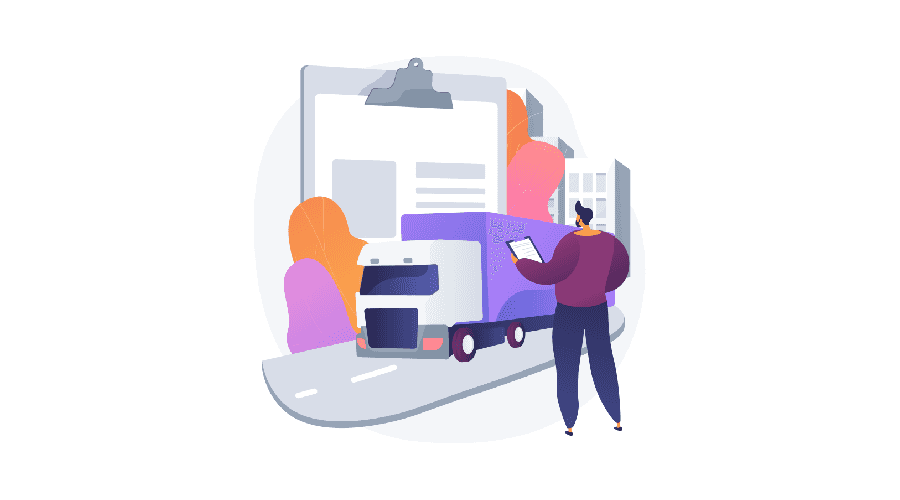
In a complex system with many different parties involved where everyone minds their interests first (as opposed to company interests), getting to the bottom of a problem creates a new problem altogether.
Since no one wants to be responsible for a 1,000-egg shipment that has gone bad, figuring out who to charge and what to do next can be lengthy.
Is it the guy driving the refrigerated van, the dispatch service that didn't see that traffic jam coming, or the guys before them who didn't send the whole thing two days ago?
This doesn't make much difference for the guy whose grocery store will have to go eggless for a few days.
The same goes for a washing machine that fell out of a trailer or a maggoty bagel wound up on a shelf because no one noticed.
Blockchain in the supply chain can help you pinpoint the error quickly and start fixing it immediately. But more about that is in the passages below.
5. Tough Time Keeping Up with Customer Demands
A big ole, complex chain with many components in it is not easy to change without disrupting all the links that come after it.
For this reason, adding a new product or amending the existing ones within an ongoing supply chain process can be quite challenging to achieve quickly.
One of the solutions for this predicament that many vendors experience would be using blockchain in the supply chain. This way, any change that needs to be applied to the whole supply chain can be administered effectively and precisely.
Build a Transparent Supply Chain Using Blockchain
Using blockchain in supply chain systems, in a way, asserts itself as a logical step forward when it comes to the logistics of getting a product from A to B, with A being the factory and B being the consumer.
Here's how incorporating blockchain in the supply chain changes the supply chain game:
- Blockchain technology captures the relevant data throughout the supply and delivery process - from the factory grounds to the end consumer.
- Since this process is broken into multiple stages or links in a chain, to put it differently - the state of the product and other details surrounding its shipment need to be recorded separately.
- To achieve this, it's a good idea to start using blockchain in the supply chain because you can record each stage of the process separately and store the data in a different but easily trackable fashion.
- Once the data is recorded, it's stored neatly in blocks - hence the name 'blockchain.'
- These blocks are stacked on top of each other; similarly, you would stack clothes in a drawer. When you need a particular T-shirt, you browse through your neatly organized garments and pull out the thing you want.
- With blockchain, the deal is even more liberating - since data regarding the trajectory and other pieces of info about a particular product is not your personal wearable object - everyone has the right to access it.
- Everyone who's a shareholder is involved in manufacturing and selling the ware in question.
Here are some of the most notable advantages of using blockchain in the supply chain:
1. Effective Real-Time Tracking
Real-time tracking makes a lot of difference regarding how much insight the individual parties involved in the chain have on the whole process.
The thing is, thanks to the technologically advanced features of a blockchain, it is possible to update the changes in the supply chain system in real-time.
So, if you're running a small corner shop wondering when you're going to get the new cookies that have been selling well - you'll have a rather precise idea if you consult your blockchain digital outpost, so to speak.
2. Fast Data Processing
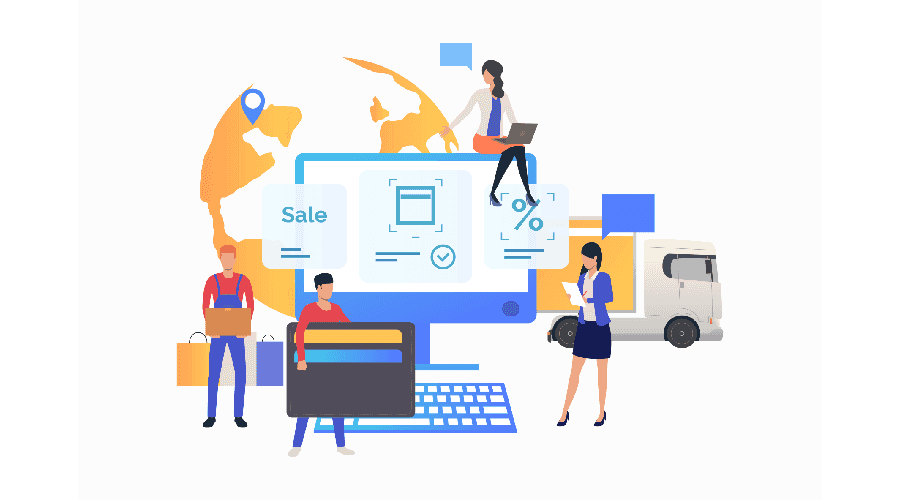
The supply chain process is often hampered by heaps of complex paperwork that makes the lives of everyone involved more difficult and tedious.
That said, the truth is, without this paperwork - the lives of the said folks would probably get even more complex, and the monotony of filling in forms would likely get replaced with the anger of filing lawsuits sooner or later.
One of the great things about using blockchain in the supply chain would be the presence of so-called smart contracts.
These contracts allow the interested parties to get rid of the often expensive intermediaries, complete their transactions safely and more quickly, and have full control of the entire process throughout its duration.
3. Improved Relationship with Customers
Having a clear idea of where your Fourchu lobster is sourced before you order, it can be quite a promising prospect.
This concept of easy trackability does not apply only to food products, either.
Any kind of product that's not just a dime-a-dozen trinket you pick up at the local fair can be worth tracking if you want to make sure that it's: a) high-quality and b) has not been tampered with en route to you.
Companies using blockchain in the supply chain can give their customers a clear idea about the product they're considering buying - from the starting stages of the production process to the delivery to their doorstep.
In the section below, we'll briefly list some well-known companies currently operating on the market that have already put blockchain technology to good use.
Top Companies Using Blockchain in Supply Chain at the Moment
As you will see, blockchain use has more to be said than folks being extra careful that their Sakhalin sturgeon arrives untampered with and fresh.
Here are some of the most noteworthy examples of high-profile businesses harnessing the power of blockchain.
1. Bumble Bee Seafoods
Yes, the seafood business is the first entry, but they're not the only ones.
If you're going to pay an excellent buck to have a high-quality fish dinner - you might as well know what ocean the unfortunate animal is getting extracted from.
Bumble Bee Seafoods is a company that's decided to make it easier for its customers to track the process of their food selection and preparation.
This way, they strengthen their brand and build better customer relationships based on trust and transparency. And awesome-tasting fish.
2. Walmart
Representing one of the biggest retailers in the Western hemisphere, the folks at Walmart have also decided to add a layer of transparency regarding their food sourcing.
Now, you can see how the Chinese pork chops are progressing across the Pacific in real time!
Also, it's easier for Walmart's health-and-safety men and women to check for irregularities with locally sourced foods. This way, eliminating a couple of rotten apples that can mess up the rest of the shipment becomes a much easier task.
3. Brilliant Earth
Brilliant Earth is a company that makes diamonds.
To convince their customers that their high-brow jewelry is not stained with the blood of some African villagers, the folks at Brilliant Earth are willing to go out of their way to make the whole extraction process as transparent as possible.
To this end, they're using blockchain in the supply chain, which is why they can claim now that their diamonds are ethically sourced and extracted.
Build Blockchain-Enabled Supply Chain Solutions with Imaginovation
Blockchain is blowing up as an elegant solution that simplifies a naturally rather complex process.
At Imaginovation, we seek to simplify blockchain-enabled solutions and make them readily available to business owners and regular consumers.
The improved overview of the process, as well as facilitated access to data and communication with customers and other participants in the process, is bound to make blockchain the technology of tomorrow.
If you’re looking to transform your supply chain with blockchain, get in touch with us.
We are an award-winning web and mobile app development company with vast experience in building blockchain applications for different industries.
Let's Talk.
